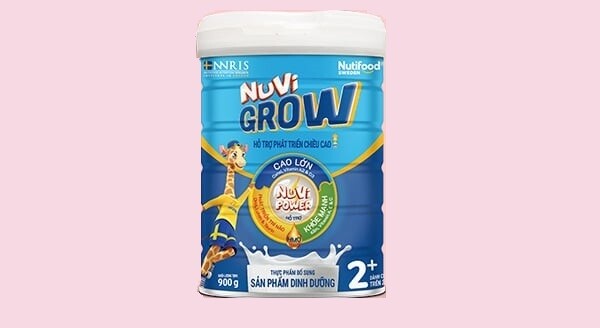While calcium is essential for a child’s growth, does that mean that the more calcium we give them, the taller they will become? Understanding the role of calcium in height development, as well as other influencing factors, is crucial for ensuring proper calcium supplementation for children.

The Role of Calcium in Children’s Height Development
Calcium is an essential mineral for the body, particularly for bone and tooth development. Approximately 99% of the body’s calcium is stored in the bones, maintaining their structure and strength. Bone development occurs mainly during childhood and adolescence, a period of rapid growth.

Adequate calcium intake supports healthy height growth in children.
Additionally, calcium plays a role in regulating other physiological functions such as muscle contraction, nerve transmission, and blood clotting. Calcium deficiency can lead to issues like rickets, osteoporosis, and other developmental disorders.
While calcium is crucial, excessive supplementation does not guarantee accelerated height growth in children. The body can only absorb a certain amount of calcium, and an excess can lead to health problems.

Parental Concerns Regarding Calcium Supplementation for Children
How much calcium does a child’s body need?
The calcium requirement varies with age, and parents often wonder about the appropriate amount to supplement their children’s diet with. Nutrition experts recommend that children receive an adequate amount of calcium according to their age group. For instance, toddlers aged 1-3 years require about 700 mg of calcium daily, while children aged 4-8 years need approximately 1,000 mg.
Should calcium be supplemented through food?
Parents often debate between choosing natural food sources or calcium supplements. It is essential to make an informed decision, especially if your child has dietary restrictions or dislikes certain foods. Experts advise that parents should prioritize natural food sources such as milk, dairy products, fish, legumes, seeds, and green vegetables for calcium supplementation.

Milk, dairy products, fish, and legumes are good sources of calcium.
Should calcium be supplemented when a child is sick?
Nutrition during illness can be challenging, and parents often worry about the safety and necessity of calcium supplementation during these times. Consulting a pediatrician can help make an informed decision.
Does calcium supplementation cause side effects?
There are concerns that excessive calcium intake may lead to health issues such as kidney stones or digestive disorders. Therefore, parents should be cautious about the appropriate dosage when supplementing their children with calcium.
What is the best time to supplement calcium?
Many parents wonder about the ideal time of day to give their children calcium supplements. When supplementing through food, it is recommended to incorporate calcium-rich foods into main meals (breakfast, lunch, and dinner). Food enhances calcium absorption, especially when vitamin D is also present in the meal.

How Does Excessive Calcium Intake Affect Height Growth?
As mentioned, calcium is essential for the healthy development of bones and teeth. However, improper supplementation, especially without the support of vitamins K2 and D3, can have serious consequences for health.
When children or adults consume too much calcium, especially from dietary supplements, the body cannot process it all, leading to excess calcium.
– Excess calcium can cause kidney stone formation, a painful condition that may require medical treatment.
– Excessive calcium intake may lead to constipation, nausea, or other digestive issues.
– This condition results in elevated calcium levels in the blood, causing symptoms such as fatigue, muscle weakness, and even cardiovascular problems.

Calcium should ideally be sourced from natural foods.
For calcium to function effectively in the body, it requires the participation of vitamins K2 and D3
Vitamin D3: This vitamin helps the body absorb and utilize calcium more efficiently. Without sufficient vitamin D3, calcium absorption is hindered, leading to calcium deficiency even with supplementation.
Vitamin K2: Vitamin K2 aids in transporting calcium to the bones and teeth, while also preventing its deposition in blood vessels. A lack of vitamin K2 can result in calcium buildup in the arteries, increasing the risk of cardiovascular disease.
When excess calcium is not supported by vitamins K2 and D3, several dangerous consequences can occur
Calcium Deposits: Instead of being directed to the bones, excess calcium may accumulate in soft tissues, leading to deposits in blood vessels, increasing the risk of atherosclerosis and heart disease.
Impaired Growth: Calcium that is not utilized by the bones can negatively impact bone health, increasing the risk of fractures and osteoporosis.
Thus, excessive calcium intake not only causes direct harm but also indicates a deficiency of vitamins K2 and D3 in the body. To protect bone health, calcium supplementation should be done rationally and in conjunction with other essential vitamins. A scientific and healthy diet will support the child’s overall well-being and growth.
|
Nuvi Grow is formulated with Nuvi Power, a trio of essential nutrients: Calcium, Vitamin K2, and Vitamin D3. This combination is backed by research from the Nutifood Sweden Nutrition Research Institute (NNRIS) and is designed to optimize children’s height and intelligence potential. Calcium strengthens bones, Vitamin D3 enhances calcium absorption from food into the bloodstream, and Vitamin K2 directs Calcium to the bones. Nuvi Grow also contains DHA, Lutein, and Taurine, supporting brain development and improving memory and learning abilities. With 3 glasses of Nuvi Grow daily, your child will confidently grow taller and smarter.
|




































